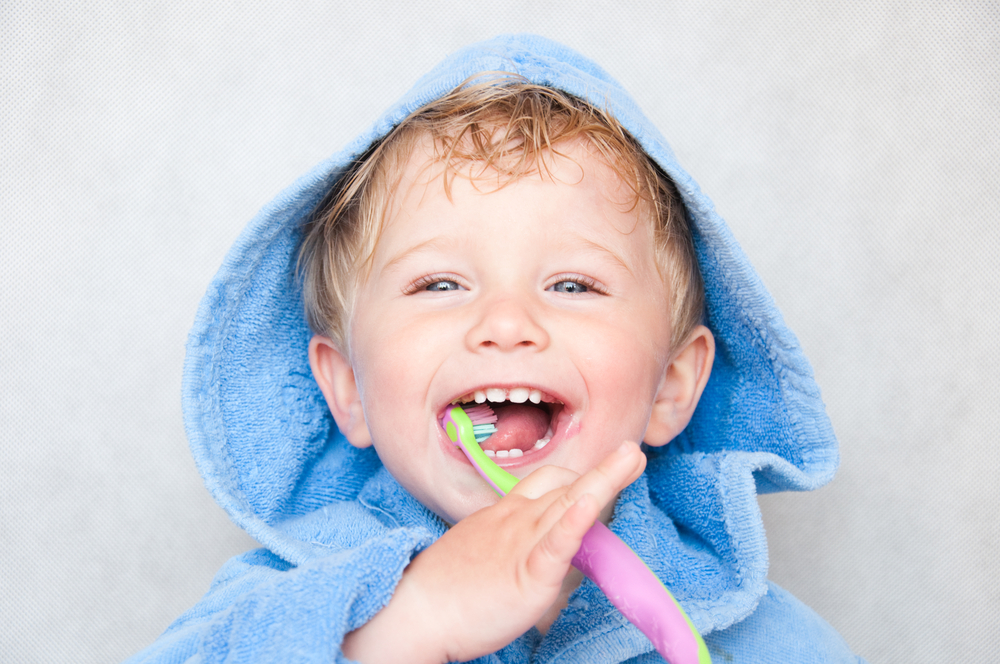Morning Star Dentistry understands the importance of establishing good oral health habits from the earliest years of development. Even as an infant, parents, and providers should focus on ensuring these habits’ development in conjunction with preventative care. It’s common for parents to mistakenly believe that oral hygiene only becomes essential after the first tooth appears. However, infants are born into the world with 20 teeth already waiting to erupt through the gumline. Tooth decay can set in before these teeth even break the surface, and that means getting started early is vital.
How Infant Oral Care Protects Your Child’s Teeth
Your child’s first tooth typically first breaks the surface around 6 months of age. Even before it erupts, your child’s oral health is already influencing their adult smile. Without taking steps to protect these newly arriving teeth, decay may make it necessary to remove them. They serve an important function in promoting a beautiful and healthy adult smile by ensuring proper jaw development and dental alignment.
One major factor influencing the risk of tooth decay in children this age is bedtime habits. It’s common for parents to put their children to bed with bottles containing sugary drinks, juice, or milk. All of these contain sugars that can promote tooth decay, especially in the frontmost teeth. Water is the only thing a bedtime bottle should contain, and even then bottles at bedtime should be avoided altogether.
The good news is that taking proper action to protect oral health at these early stages can prevent this concern altogether. An effective infant oral care routine includes the following:
- Cleaning The Gums: Even before the teeth appear, a warm soft washcloth can be used to clean your baby’s gums. This helps keep their mouth healthy, and also begins to establish a routine of oral hygiene.
- Brushing: Once the first tooth erupts, you can begin brushing your child’s teeth. A soft-bristled toothbrush and a small drop of toothpaste are all you need. This step should take place until they’re able to brush their teeth on their own.
- Flossing: Flossing should be introduced as soon as it seems appropriate. Even two teeth side-by-side create a space that needs hygiene. As with brushing, it’s important to continue this process until they can achieve it on their own.
- Dental Visits: Twice-yearly dental visits should begin no later than the eruption of the first tooth. Maintaining a routine of these twice-yearly visits is critical to lasting oral health.
By establishing these habits early, you are taking important strides toward protecting your child’s oral health.
Frequently Asked Questions
How should I take care of my baby’s teeth and gums at home?
Infants do not have teeth to brush or floss. However, they do have gums that should be cleansed gently with a damp cloth each day. Once the first tooth emerges, an age-appropriate-sized toothbrush can be used to carefully brush and prevent the build-up of plaque.
Should I bring my infant to the dentist?
Yes. Early visits to the dentist are highly informational and supportive. Children should visit the dentist for the first time within six months of getting a first tooth and no later than age one. Choose a pediatric dentist in [city] who specializes in treating children and adolescents. Keep in mind that the initial dental visits for babies and toddlers are primarily educational, but have a significant long-term impact on your child’s oral health.
Is there anything I can do to prevent early childhood tooth decay?
In addition to cleaning your infant’s teeth and gums, you can help prevent tooth decay by ensuring your child is getting plenty of fluorides – whether in your local water source, via fluoridated toothpaste or by way of professional fluoride treatments. In addition, do not allow your child to go to bed with a bottle, as doing so can lead to a condition known as ‘baby bottle decay’.
Contact Morning Star Dentistry For Infant Oral Care
These early stages of your child’s dental development are critical, and our team is here to help support you along the way. Schedule your child’s first oral health appointment before they reach six months of age, or as soon as possible in older children. Dr. Justin Liggett and our team in Sonora, CA, look forward to welcoming you to our practice.


